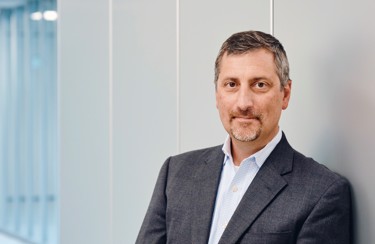Cell & Gene Therapies For Parkinson's Disease

By Erin Harris, Editor-In-Chief, Cell & Gene
Follow Me On Twitter @ErinHarris_1

BlueRock Therapeutics, a clinical stage biopharmaceutical company and wholly owned subsidiary of Bayer AG, successfully administered the first dose of its pluripotent stem cell-derived dopaminergic neurons, named DA01, to a Parkinson’s disease patient in their open-label Phase 1 clinical study. In parallel, AskBio conducted a gene therapy program also targeted at providing advanced therapies for Parkinson’s disease, and the program is currently recruiting and evaluating patients in an ongoing Phase 1b clinical study.
I caught up with Emile Nuwaysir, President and CEO of BlueRock Therapeutics to learn more about the recruitment process for the trial, the trial’s primary objective, and more.
Explain the recruitment process for clinical trial participants.
Working closely with our collaborators, we are recruiting ten (10) patients for the initial PhI study. These patients must be aged 60-76 (U.S. sites) or 50-76 (Canadian site) and have been diagnosed with Parkinson’s disease (PD) between five and 15 years ago. Two critical features we are looking for in trial participants are: 1) patients for whom their regular PD medications are no longer fully effective, or who have developed side effects from these medications; and 2) patients who have not had surgical treatments for their PD (e.g. Deep Brain Stimulation).
The initial study site is Weill Cornell Medical Center, under the guidance of Dr. Sarva, M.D., Principal Investigator (PI). We are also in the process of activating two more sites: Dr. Henchcliffe, M.D., D.Phil., at the University of California, Irvine (UCI) and Dr. Lozano, O.C., M.D., Ph.D., F.R.C.S.C., F.R.S.C., F.C.A.H.S., at the University of Toronto (UNH) will act as PIs at additional sites at UCI and UNH, respectively.
Explain the trial itself — how long will it last? Does BlueRock anticipate any regulatory hurdles, and how will the company overcome them?
The primary objective of the PhI study is to assess the safety and tolerability of DA01 cell transplantation at one-year post-transplant. The secondary objectives of the study are to assess the evidence of transplanted cell survival and motor effects at one- and two-years post-transplant, to evaluate continued safety and tolerability at two years, and to assess feasibility of transplantation.
We do not anticipate regulatory hurdles but will be working closely with the FDA and Health Canada throughout the process.
Explain how AskBio’s approach to Parkinson’s.
AskBio is not involved in the BlueRock clinical trial in any way. Using authentic dopaminergic neurons as therapy, BlueRock aims to re-innervate the affected regions of the human brain and reverse degenerative disease, potentially restoring motor function to patients suffering from Parkinson’s.
AskBio’s approach consists of an AAV that delivers human glial cell line-derived neurotrophic factor (GDNF) gene to the neurons within the putamen, resulting in expression and secretion of GDNF protein in brain regions impacted by Parkinson’s disease.
